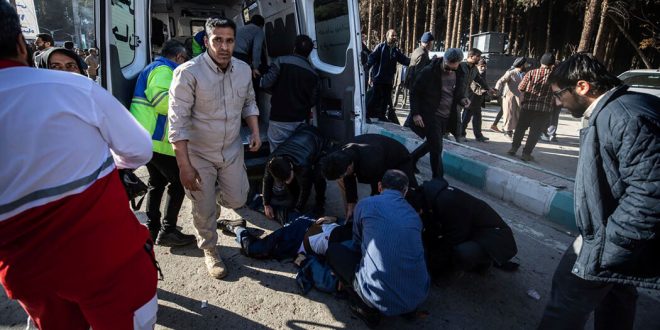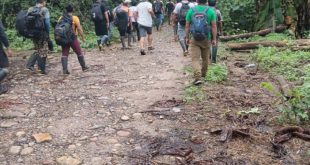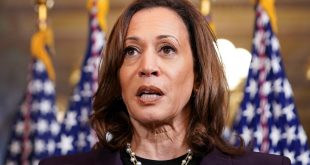A pair of explosions on Wednesday at a memorial for Iran’s former top general, Qassim Suleimani, killed at least 103 people and wounded an additional 211, according to Iranian officials, sowing fear in a country where domestic unrest and the prospect of a spiraling regional war have left many on edge.
Iranian officials told state media that a pair of bombs had been placed in bags along the road toward a cemetery in the city of Kerman, and exploded as a vast procession of people made their way there to commemorate the fourth anniversary of General Suleimani’s death. The architect of the axis of regional militias backed by Iran’s hard-line government, he was killed in an American drone strike.
The attack in Iran on Wednesday led to finger-pointing, confusion and speculation after no group took responsibility.
Many Iranians, already disenchanted by their leaders, were outraged that the authorities had failed to provide adequate security for an event attended by thousands of people. Officials in the government blamed the two countries Tehran has long cast as archenemies, Israel and the United States. International intelligence experts and analysts said the attack bore the hallmarks of terrorist groups, not of Israel.
Iranian officials said the roadside bombs appeared to have been detonated via remote control.
“I heard the explosion 25 meters away from me,” a male witness to the bombing told the local Rah-e-Arman-e-Kerman News Agency. “On the ground, there were all women and children like withered flowers.”
Videos posted on social media and verified by The New York Times show people screaming and running away as smoke rises southwest of the cemetery. Videos also show civilians carrying injured people on stretchers and ambulances driving through the crowds that had gathered along a road near the site.
“God help us — everyone is killed,” some of the wounded, bloodied in the attack, can be heard screaming.
The attack came at a time of heightened anxiety in Iran and across the region.
For years, Sunni terrorist organizations including the Islamic State have conducted attacks on civilians across the Middle East, from Iraq to Lebanon to Afghanistan, but in Iran, there have been only a handful over the past 20 years.
Since Oct. 7, Israel has prosecuted its war in Gaza against Hamas, a key member in Iran’s network of militant groups. That war has laid ruin to Gaza’s civilian infrastructure and killed more than 20,000 people, the majority of them women and children, according to Gaza health officials.
Iran’s allies, among them Hezbollah in Lebanon and the Houthis in Yemen, have opened multiple fronts against Israel, disrupting international shipping and escalating the threat of a regional war. So far, Iran has not gotten directly involved in the war.
In late December, Israel assassinated a senior Iranian Revolutionary Guards commander who was in charge of procuring weapons for Hezbollah and Syrian militants. Then on Tuesday, a senior Hamas official who was a close liaison with Iran and Hezbollah was killed in a Beirut, Lebanon, suburb dominated by another Iran-backed group, Hezbollah.
In the aftermath of the attack in Kerman, two people closely affiliated with the Revolutionary Guards and familiar with internal debates among Iranian decision makers said, the country’s military and political leaders quickly decided to hold Israel responsible for the bombings. Even if a terrorist or opposition group claims responsibility for the attacks, they said, Iran would insist Israel had a hand in it.
That assessment contrasted sharply with the analysis by U.S. intelligence agencies, according to three American officials. Early assessments indicate that Israel was not involved, the officials said.
While Israel has regularly carried out covert operations in Iran, they have been targeted against specific individuals, like Iranian scientist or officials, or at nuclear or weapons facilities.
Iran’s supreme leader, Ayatollah Ali Khamenei, issued a statement blaming the attack on Iran’s “malicious and criminal enemies,” though he stopped short of naming any group or country. Mr. Khamenei vowed that Iran’s enemies should know that “this tragedy will have a strong response.”
Both Iran’s president and the deputy head of Parliament were more pointed in their accusations.
“We tell the criminal America and Zionist regime that you will pay a very high price for the crimes you have committed and will regret it,” said President Ebrahim Raisi.
The deputy Parliament head, Mojataba Zolnouri, said that it was “clear from the style of the attacks that it is the Zionist regime,” and that “the Islamic Republic holds the right to response, but will determine the time, date and place of revenge itself.”
The two people familiar with Iran’s internal discussions said that Ayatollah Khamenei has been more cautious, instructing military commanders to pursue “strategic patience” and avoid getting Iran into a direct military confrontation with the United States at all costs. The people said he had ordered the military to limit retaliation to covert operations against Israel or proxy militia attacks on U.S. bases in Syria and Iraq.
Mr. Khamenei, they said, views the recent assassinations of an Iranian commander in Syria, the Hamas official in Beirut and the attacks in Kerman as a coordinated campaign by Israel to distract from the international outrage over the war in Gaza.
Analysts said there were numerous possibilities for who might have attacked the cemetery, including Sunni Muslim terrorist organizations like the Islamic State or Iranian separatist groups.
Despite the accusations by Iranian leaders, analysts said the bombing bore the hallmarks of Islamist terrorism. It did not fit Israel’s usual methods when striking Iran, said Ali Vaez, the Iran project director at Crisis Group.
Whoever was behind the attack, its human cost “has not been seen on this scale inside Iran,” especially not one “occurring on a symbolic date — the death of the axis of resistance’s godfather,” said Sanam Vakil, deputy head of the Middle East and North Africa program at Chatham House.
Just before the explosions in Kerman, videos show, a dense crowd of thousands were walking along a road lined with food and drink stalls and flags as a prayer from speakers. Then a huge blast rocked the area. The air filled with screams, and people scattered in all directions, videos showed.
“Unfortunately, many of the injured people are in critical condition,” said Babak Yektaparast, a spokesman for the country’s emergency relief operations. He said all medical facilities in the province of Kerman were on standby to treat patients and emergency airplanes were being deployed for medical evacuations to hospitals in Tehran.
Iran declared a national day of mourning for Thursday and emergency officials issued a call for blood donations.
Iran’s interior minister, Ahmad Vahidi, told state television that most of the casualties were from the second explosion, which followed the first by minutes and occurred as crowds gathered to help the wounded. A second, delayed explosion is a common tactic among terrorist groups.
Mr. Vahidi said the city of Kerman was now under the control of security and military.
Although terrorist attacks in Iran are rare, they are not unheard-of.
In 2017, the Islamic State launched twin attacks in Tehran, killing 12 people in strikes on Parliament and the mausoleum of Ayatollah Khomeini. In August and October of 2022, Islamic State gunmen raided a religious shrine in the city of Shiraz, opening fire on people praying and killing dozens.
The explosions on Wednesday came four years to the week after the American drone strike killed General Suleimani, the longtime commander of the Iranian Revolutionary Guards Corps’ powerful Quds Force, at Baghdad airport.
In life, General Suleimani was hailed in Iran and in parts of the wider region as a hero for building and arming a network of proxy militias to counter the influence of the United States and Israel across the Middle East. To this day, he continues to enjoy near-mythic status among pro-government Iranians.
His funeral in 2020 drew more than a million mourners, according to official estimates. Every year, on the anniversary of his assassination, some Iranians hold processions and ceremonies in his honor.
On Wednesday, some Iranians on social media were blaming the government and local security officials for failing to secure such a high-profile event. During the funeral ceremony for General Suleimani in 2020, a stampede along the same road as the explosions killed 60 people.
Leily Nikounazar, Julian Barnes and David E. Sanger contributed reporting.
 Top Naija News – Nigeria News, Nigerian News & Top Stories Top Naija News – Nigerian Newspapers, Nigerian News. topnaijanews is a daily Nigerian newspaper covering Latest News, Breaking News, Entertainment, Sports, Lifestyle and Politics.
Top Naija News – Nigeria News, Nigerian News & Top Stories Top Naija News – Nigerian Newspapers, Nigerian News. topnaijanews is a daily Nigerian newspaper covering Latest News, Breaking News, Entertainment, Sports, Lifestyle and Politics.




